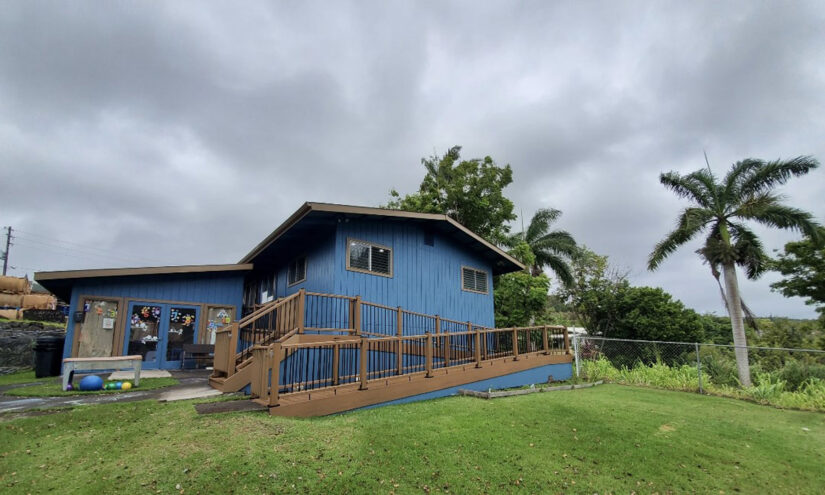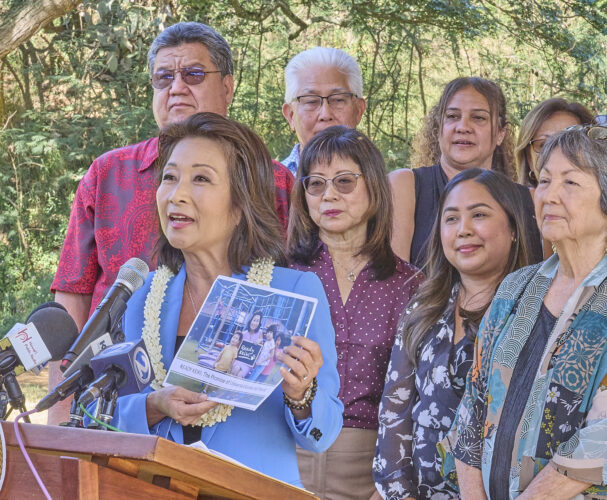During this summer, a team of students from MIT embarked on a journey to the sou …
Growing Demand for Preschool in Hawaii Amid Decreased Federal Funding
Jennifer Livingstone

Malia Tsuchiya, a resident of Hawaii and a mother of five, is well aware of the high costs of raising a family in the state. However, with her youngest child starting preschool at the age of 3 and her oldest child heading to college later this year, Tsuchiya expressed that her family’s finances have been stretched like never before.
Tsuchiya currently pays $1,100 per month to send her youngest child to preschool.
Fortunately, next year, many families will see a reduction in costs thanks to changes made to the Preschool Open Doors program. The program’s criteria for state subsidies have been expanded to include families with 3-year-olds and those with incomes up to 300% of the federal poverty guideline. Previously, the program only covered preschool tuition for 4-year-olds and had stricter income requirements.
Tsuchiya expressed her relief, stating, “The money that we’re saving is going to help us so dramatically.”
The number of children qualifying for these tuition subsidies is projected to double this year, increasing the demand for early learning as the state works towards its goal of providing preschool access to all 3- and 4-year-olds by 2032.
According to Ready Keiki, an initiative introduced by Lt. Gov. Sylvia Luke, approximately half of Hawaii’s children currently do not attend preschool.
Luke highlighted that the recent changes mean a family of four with a household income of $100,000 could now qualify for the preschool tuition subsidy.
Concerns Over Lack of Federal Relief Funds
In order to ensure that all eligible children have a spot in preschool, the state must create over 400 classrooms in the next eight years. However, the end of federal Covid-19 relief funds could hinder the state’s efforts to expand the preschool sector.
The federal relief funds totaled over $110 million, with approximately $72 million expiring in November of last year. The remaining funding, amounting to $44 million, must be spent by September, according to the Department of Human Services.
Julie Kashen, a senior fellow at The Century Foundation, warned that the expiration of federal relief funding could result in the closure of around 130 child care programs in Hawaii.
Kashen emphasized that the impact of the lost funds may not be immediate but without adequate investment in child care providers, some centers may reduce staff and ultimately close.
Despite the challenges, the expansion of preschool facilities has been a priority for Hawaii in recent years. However, the state still faces difficulties in recruiting and retaining preschool workers.
Megan McCorriston, CEO of Seagull Schools, highlighted the importance of federal funding in supporting staff salaries during the pandemic. The funds also helped keep tuition costs relatively low at the school’s five preschool and child care facilities.

The state provided $2,500 bonuses to over 3,000 child care employees using the federal funding. Additionally, more than 600 providers received funds to cover various expenses such as rent, payroll, and professional development.
Deborah Zysman, executive director of the Hawaii Children’s Action Network, acknowledged the stabilization of the early learning workforce during the pandemic. However, Zysman emphasized the need for further investments to expand the preschool sector.
State Solutions Required
Lt. Gov. Sylvia Luke stated that approximately 2,800 children could qualify for Preschool Open Doors tuition subsidies this year. However, the shortage of preschool staff poses a challenge as not all preschools are operating at full capacity.
Vivian Eto, strategy and project management lead for the Early Childhood Action Strategy, expressed hope that the Legislature could provide a solution in the near future.

House Bill 1964 is being considered to establish a wage subsidy of at least $16 per hour for child care providers. The proposed subsidies aim to replace the expiring federal Covid relief funds.
Rep. Lisa Marten, chair of the House Human Services Committee, expressed hope for the passage of the bill during this session, despite competing needs.
Hawaii’s Executive Office on Early Learning currently operates 49 public preschool classrooms with a total of 947 seats. The state plans to add 130 classrooms by 2026 and a total of 231 classrooms by 2028, according to the School Facilities Authority.
While the expansion of public preschool facilities is welcomed, concerns regarding ongoing workforce shortages persist. Higher pay for teachers in state-run preschools may entice some educators to switch from the private sector.
Paula Yanagi, executive director of Ka Hale O Na Keiki Preschool, expressed her desire for the state to invest in community preschools, particularly in small rural communities like hers.
Yanagi remains hopeful that the influx of federal funding during the pandemic signifies the importance of supporting preschools in the future.
The education reporting for this story is made possible by a grant from Chamberlin Family Philanthropy.
This story was originally published in [source]

